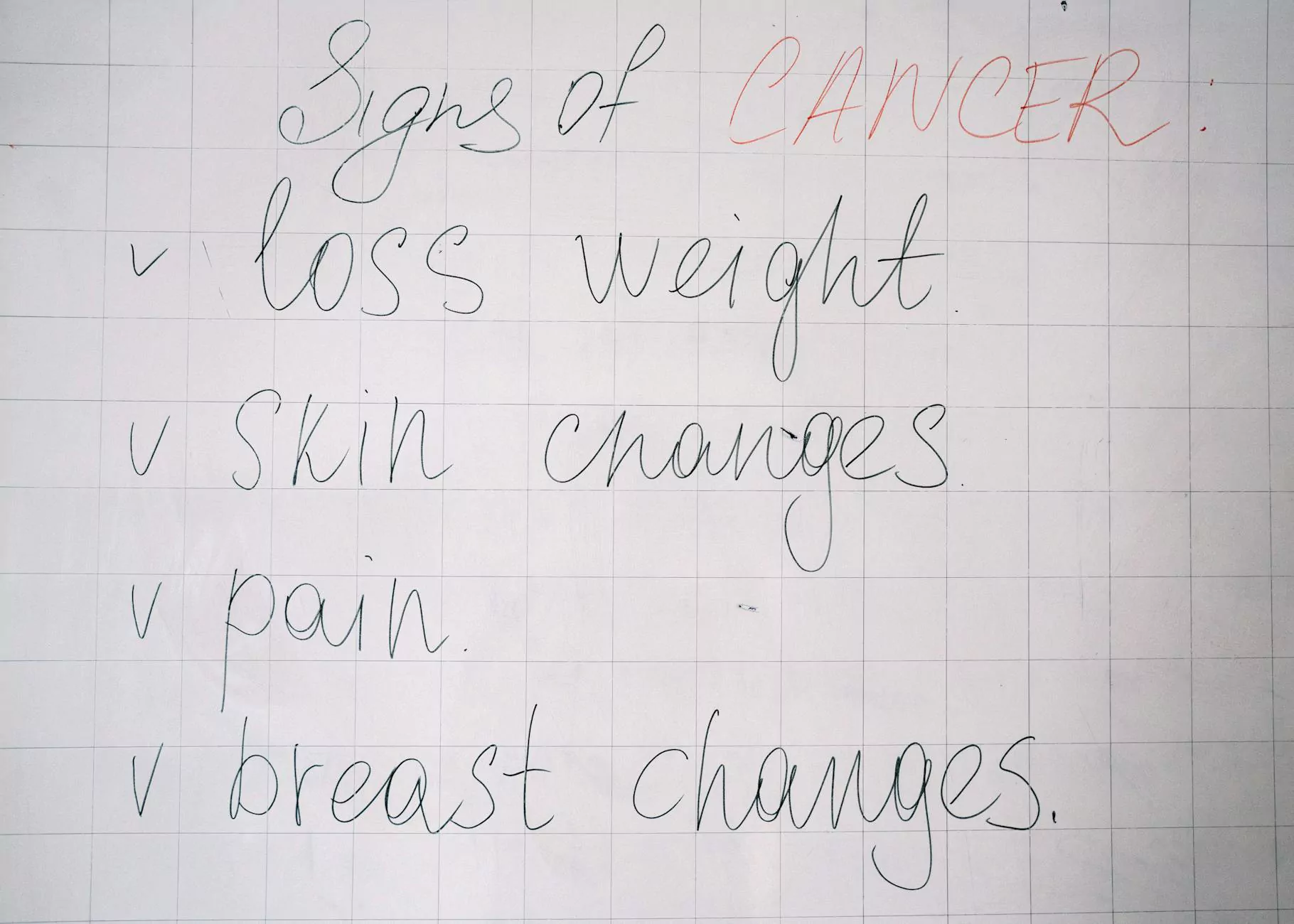Understanding the Role of Colon Cancer Doctors in Your Health Journey

Colon cancer is a significant health concern, affecting thousands of individuals annually. The importance of seeking specialized care from colon cancer doctors cannot be overstated. These professionals play a crucial role in managing this disease, providing expert insights and tailored treatment options that can significantly enhance outcomes. In this comprehensive guide, we will explore the functions and services offered by colon cancer specialists, the importance of early detection, treatment options, and how to choose the right healthcare provider.
What Affects Your Decision in Choosing a Colon Cancer Doctor
Choosing the right colon cancer doctor is essential for effective treatment and recovery. Here are several factors to consider:
- Qualifications: Ensure your doctor is board-certified in oncology and gastroenterology.
- Experience: Look for a specialist with extensive experience in treating colon cancer.
- Communication: A doctor who communicates clearly and addresses your concerns can significantly enhance your treatment experience.
- Hospital Affiliation: Consider doctors who are affiliated with reputable hospitals or cancer treatment centers.
- Patient Reviews: Research online reviews and testimonials from former patients to gauge satisfaction and outcomes.
The Importance of Early Detection in Colon Cancer
Early detection of colon cancer is pivotal in improving survival rates. The earlier colon cancer is diagnosed, the more treatment options are available, and the higher the chances of recovery. Regular screenings such as colonoscopies can detect precancerous polyps, allowing for timely intervention. As a patient, it's crucial to understand when to begin screening based on risk factors, including age, family history, and lifestyle.
Common Screening Methods
There are several effective screening methods used by colon cancer doctors:
- Colonoscopy: This procedure allows doctors to examine the entire colon and rectum for abnormalities.
- Stool Tests: These tests check for signs of colon cancer in the stool, including blood or abnormal DNA.
- Flexible Sigmoidoscopy: Similar to a colonoscopy, this procedure examines the lower part of the colon.
Understanding Treatment Options Available from Colon Cancer Doctors
Once diagnosed, your colon cancer doctor will recommend a personalized treatment plan based on the stage of cancer and your overall health. Below are the most common treatment options:
Surgery
Surgical intervention is often necessary to remove cancerous sections of the colon. Your doctor may recommend:
- Partial Colectomy: Removal of a segment of the colon.
- Colostomy: Creating an opening for waste removal if a portion of the colon is removed.
Chemotherapy
Chemotherapy uses powerful drugs to kill cancer cells. Often recommended if the cancer has spread beyond the colon, it may be used:
- Before Surgery: To shrink tumors.
- After Surgery: To eliminate remaining cancer cells.
Radiation Therapy
Radiation therapy may be recommended in specific cases, often in conjunction with surgery. This treatment targets cancerous areas with high-energy rays.
Managing Side Effects of Treatment
Each treatment option comes with its own set of potential side effects, such as nausea, fatigue, and changes in appetite. Colon cancer doctors focus not only on treating cancer but also on helping patients manage these side effects effectively. They may recommend:
- Nutritional support: Dietary changes to help cope with treatment side effects.
- Pain management: Medications or therapies to alleviate discomfort.
- Support groups: Connecting with others facing similar challenges can provide emotional support.
Follow-Up Care After Treatment
Once treatment is complete, follow-up care is essential. Your colon cancer doctor will schedule regular check-ups to monitor for any signs of recurrence and manage long-term side effects. This may include:
- Regular Scans and Tests: To ensure cancer has not returned.
- Ongoing Communication: Discuss any new symptoms or concerns that arise.
The Role of Lifestyle Changes in Recovery
After treatment, engaging in a healthy lifestyle can significantly impact recovery and overall well-being. Here are some recommendations from colon cancer doctors:
- Maintain a Healthy Diet: Focus on a balanced diet rich in fruits, vegetables, and whole grains.
- Exercise Regularly: Physical activity can boost your immune system and improve mental health.
- Avoid Tobacco and Limit Alcohol: Both can increase the risk of cancer recurrence.
Finding Support and Resources
Dealing with colon cancer can be overwhelming. Fortunately, various resources are available to assist patients and their families, including:
- Cancer support organizations: Many provide resources, information, and community support.
- Online forums and communities: Platforms where patients share experiences and advice.
- Counseling services: Professional help to address emotional health and well-being.
Conclusion: Embracing Hope with Your Colon Cancer Doctor
In conclusion, the journey through colon cancer treatment is challenging, yet vital support systems are in place to help you thrive. The expertise and guidance of colon cancer doctors can make a significant difference in outcomes, providing patients with the tools necessary for effective treatment and recovery. By prioritizing early detection, following recommended treatment plans, and embracing a healthy lifestyle, you can take proactive steps towards reclaiming your health. Remember that you are not alone; there are many resources and communities ready to support you through every step of this journey.
For assistance and expert care, consider visiting oncologicalsurgery.net to find qualified colon cancer doctors who can lead you towards a healthier future.








